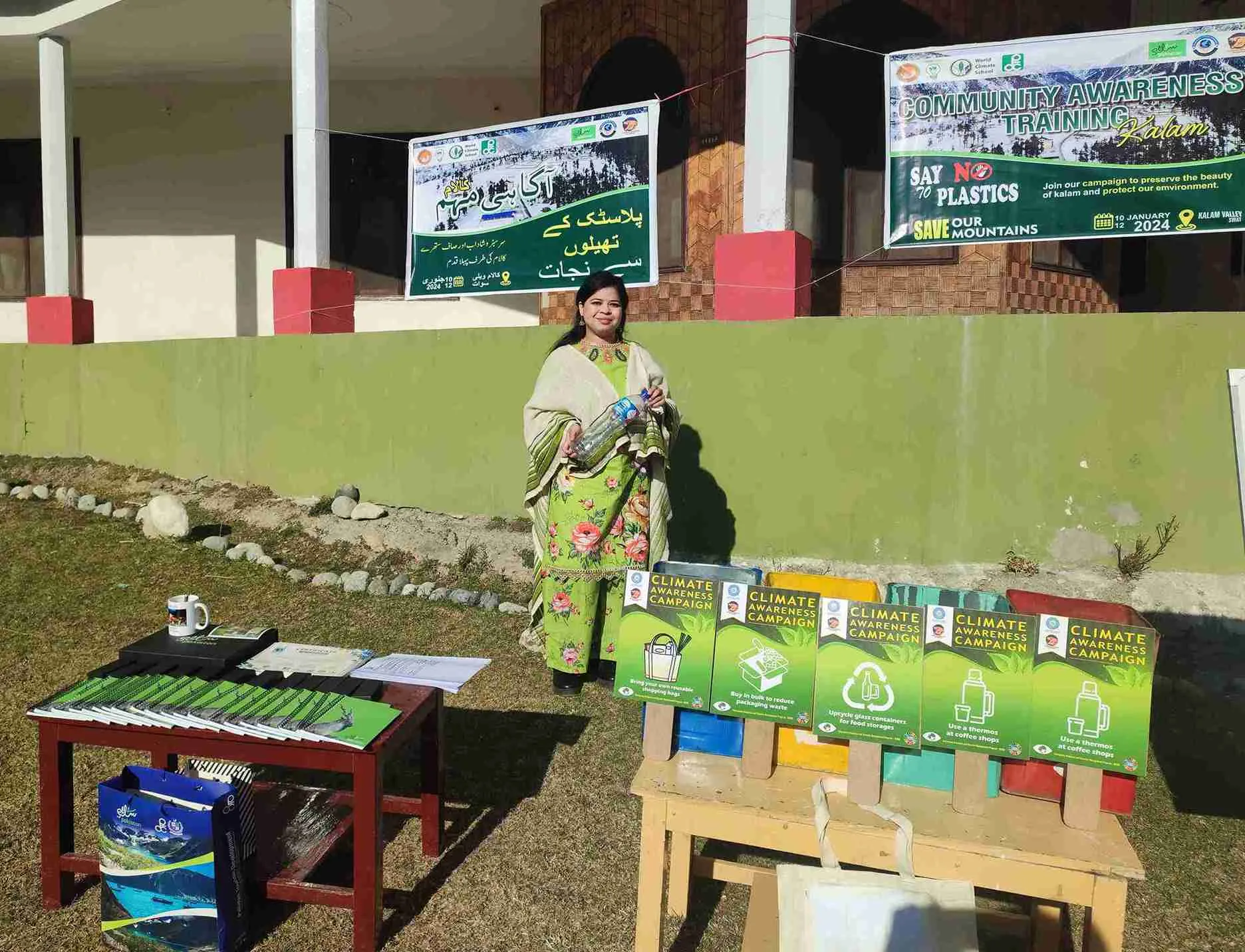( by Dr. Sadia Khalid- Founder Climate Education Warriors)
Swat Valley is located northwest of Khyber Pakhtunkhwa and is well-known for its charming valleys and meadows, which include lush flora and glacial streams, waterfalls, and rivers. Bahrain and Kalam are part of upper Swat which attract thousands of tourists each year.
The tourist business in Swat Valley was destroyed during the militant conflict that lasted from 2007 to 2010. Even after the situation had been normalized, travelers were fearful to visit the region. The disastrous flood of 2010 also harmed tourism by destroying several bridges, highways, and hotels. After 2014, tourists began to visit the region for tourism. A record number of tourists were seen in 2015 and 2016, and the tourism industry is in bloom now.
The 2010 floods largely impacted the 2022 floods as both occurred in the river’s bed, which had been used for living and farming since 1929, despite a 2002 law prohibiting construction near the river. The 2010 flood washed away buildings within the riverbed, but they were rebuilt, and after the 2022 floods, reconstruction on the same sites continues, stressing the constant human-nature conflict.
These destinations face environmental degradation as a result of tourism-related activities. These issues include waste, water, air, and noise pollution which is a threat to the ecosystem, freshwater resources, fertile agricultural land, and biodiversity. The unplanned construction of hotels, restaurants, shops, and other buildings worsens environmental issues. Other issues raised by residents as a result of heavy traffic jams include security concerns, increased pollution, and temperature, which affect local people’s health, Due to the influx of tourists, the amount of solid waste in the region increases, affecting the aesthetics and the natural ecosystem.
Mismanagement of solid waste becomes breeding grounds for flies, mosquitoes, and insects, and also pollutes freshwater resources, and causes blockages in drainage and sewerage lines.
Ali, a resident of Bahrain stated:
The increase in garbage has caused drainage and sewerage lines to become filled and blocked, leading to sewage and other waste flowing onto streets, degrading the environment.
Dr. Khurram from Swat Medical Complex highlighted:
The common diseases associated with waste pollution include malaria, typhoid, skin allergies, diarrhea, vomiting, tuberculosis, cough, asthma, and hepatitis.
A resident from the village of Kalam complained:
Most of the garbage is collected from hotels, with some hotels generating enough waste to fill up to ten dustbins per day during peak tourist season. The TMA Bahrain is responsible for collecting garbage from the main road and designated points, TMA does not collect the waste regularly.
According to one of the TMA employees:
Garbage increases by 50% to 70% during the peak tourist season, with daily waste collection rising from 3 tons to as much as 5 tons.
He further reported:
The cost of waste collection and disposal increases by 20% due to higher fuel charges for collection vehicles. Additionally, the summer season brings longer hours and a heavier workload for staff responsible for waste collection. The waste is dumped in open plots instead of proper disposal sites and the hotels and houses often dump sewage directly into rivers, leading to serious water pollution and environmental damage.
Commissioner Malakand Division, Saqib Raza Aslam expressed his concern in the following words:
Despite repeated warnings, the local community continues to build on riverbeds, insisting it’s their property while neglecting all the consequences of floods.
He further added:
Our local administration imposed a fine of 10,000 on shopkeepers and hotel owners for using plastic bags and is actively educating the local community to switch to reusable bags and wooden baskets.
Tackling environmental degradation and plastic pollution in tourist places like Swat Valley is something we all need to take seriously, and it requires a joint effort from everyone—local administration, youth networks, the community, and even local businesses. The administration can enforce rules like fines for plastic bags and ensure proper waste management, but that’s just a one-way solution. Youth networks can have a great impact by organizing awareness campaigns, clean-up drives, and promoting sustainable lifestyles. The community also play a role in reducing plastic use, recycling, and participating in local clean-up drives.
Hotel owners and shopkeepers must also step up by managing their waste responsibly and cutting down on single-use plastics. Regular cleanliness drives, supported by everyone, can save mountains’ biodiversity and ecosystem. Our valleys can become cleaner and greener if we all contribute in the same way.






